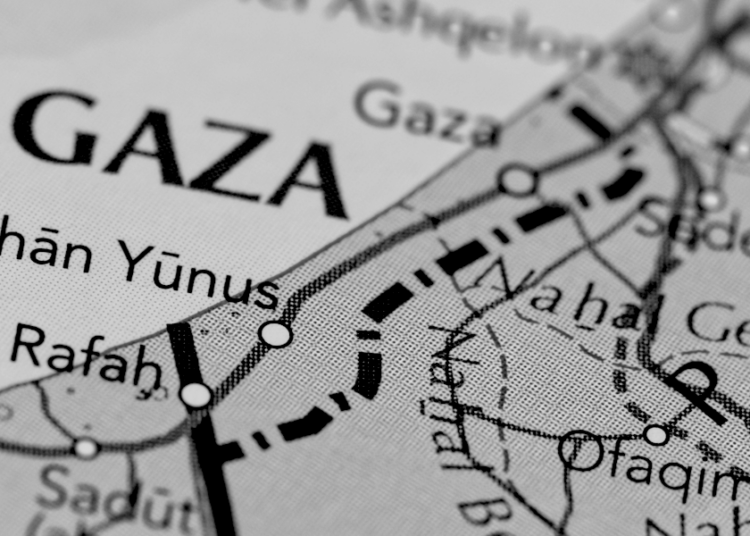This is the first of two articles on Israel and Gaza after the war.
ARE miracles still possible in the Middle East? Is it possible to take two peoples with a multi-generational hatred and raise a future of lasting peace from the death and destruction of war?
Eventually there will be a cessation to the war being waged in Gaza. If Israel stands strong, the day will come when Israel’s forces will turn to policing, and bringing some order to a post-war Gaza. When that happens, Israel has another even more difficult challenge: to win long-term peace with the Gazans. It must start preparations for that process now.
With no peace, Gaza will be back to a worse position than 2005, and victory against Hamas will provide only a temporary halt to the violence and hatred, for Gazans and Israelis alike. There are two parties that will benefit from the removal of Hamas from Gaza – Gazan citizens and Israeli citizens – and they have a mutual interest in working together.
So what could a peace between Gaza and Israel look like?
Gazans should be given the opportunity to rebuild their lives, and make Gaza a success of peace rather than a failure of terror. Israel and Israelis need to be an integral part of that rebuilding: not just the building of homes, infrastructure and economy, but also of bridges between Israeli citizens and Gazan citizens.
The first part of achieving that peace is establishing law and order after the violence and chaos of war. Israel must police Gaza from the inside. It is the only entity with the intelligence infrastructure, force and determination to effect that order within Gaza. The Palestinian Authority (PA) cannot be given control of Gaza: replacing Hamas with Fatah is replacing one terrorist group with another. To date, the PA leader Abu Mazen (aka Abbas) has refused to acknowledge the atrocities of October 7, even though Fatah have been boasting that they took part in the massacres and released videos of their participation. The PA has a pay-to-slay policy – a bounty on the head of every Jew in Israel – not something that encourages peace and stability for anyone. A UN peacekeeping force will not do, either. UN forces have proved time and again to be toothless observers, not enforcers. And UNRWA (the United Nations Relief and Works Agency for Palestine Refugees in the Near East) should be banned from Gaza: their presence perpetuates the ‘victimhood’ of Gazans rather than working towards peace.
There are potential partners for peace with Israel already in Gaza. In the 2017 protests against the hardships Hamas imposed on them, thousands took to the streets; Hamas suppressed their dissident expression of unrest with gunfire and arrests of the leaders. There were further protests in early 2019, and most recently at the end of July and beginning of August of this year. There are now many Gazans publicly expressing their hatred of Hamas and what it has done to them now they are coming out from under the control and fear of the terrorist organisation.
In a Washington Institute poll of July 2023, 65 per cent of Gazans thought it likely that there would be ‘a large military conflict between Israel and Hamas in Gaza’ this year, but a similar number (62 per cent) supported Hamas maintaining a ceasefire with Israel. Importantly, 50 per cent agreed with the proposal that ‘Hamas should stop calling for Israel’s destruction, and instead accept a permanent two-state solution based on the 1967 borders.’ This tends to suggest that Gazans are now standing up against their Hamas-designated role of sacrificial pawns in the existential war waged against Israel and Jews by the hardline Islamic extremists. Interestingly, in that same poll 70 per cent of Gazans supported a proposal for the PA to send ‘officials and security officers to Gaza to take over the administration there, with Hamas giving up separate armed units’ – an indication that the Gazans have rejected Hamas and would prefer even the corrupt PA, which they rejected in 2006.
However, a public poll of Gazans and Palestinian residents of the West Bank by Birzeit University (located in the West Bank, and deeply anti-Semitic) after the October 7 massacre shows there are still worrying signs of propaganda informing and shaping the thinking of Gazans. Seventy per cent are advocating for a ‘Palestinian state from the river to the sea’, but 23 per cent said they want a two-state solution for two peoples. Only 7 per cent of Gazans strongly expected Gaza to return to PA rule. Perhaps, once they feel safe from reprisals from Hamas for expressing a more conciliatory opinion towards Israel, the anti-Hamas/pro-peace movement will gain more momentum and a louder voice.
What’s needed after the war is a process of healing, rebuilding and progress to a politically stable, economically successful and socially peaceful Gaza; a Gaza that works with Israel rather than against it; a Gaza that is vigilant to ensure no attempts to re-radicalise the population ever come to fruition. Placing anything between Israel and Gaza will give an opportunity for the anti-Israel protagonists to re-open the divisions.
Combined with that process, the propaganda of the Islamists must be debunked. The education system should be divested of its anti-Semitic/pro-terror material, and a more open, truthful curriculum be presented.
A forum for both Gazans and Israelis to share their grievances, to admit wrongs of the past, and to see that each side has a genuine story to tell, tragedies to mourn, and hopes for the future that encompass peace, good will and reconciliation could help that process: a forum of people who genuinely wish to pursue peace and stability, not to rage and demand revenge. Shouting over a wall does no good; sitting around a table and talking can. They are all human, and they need to see and feel each other’s humanity.
Tomorrow: How to start the peace process.

